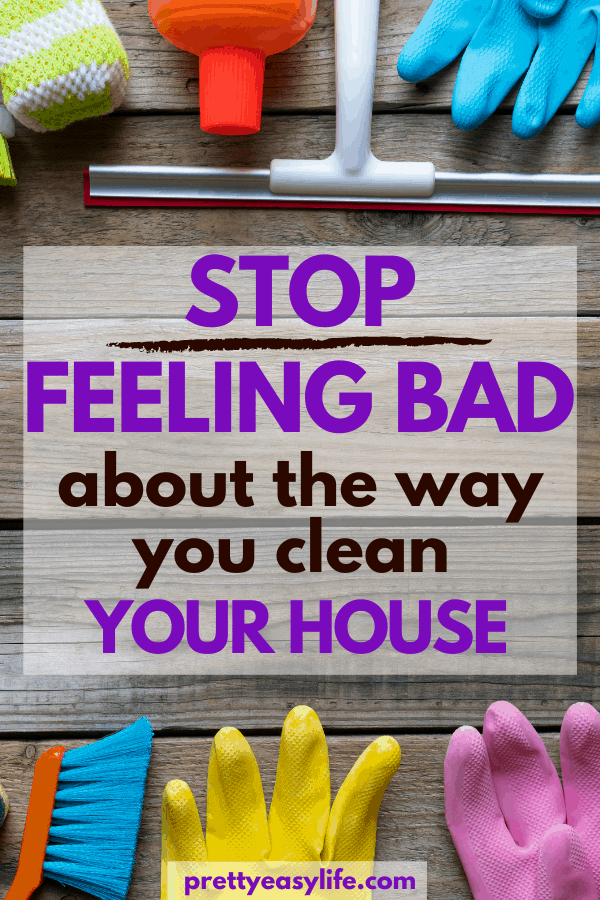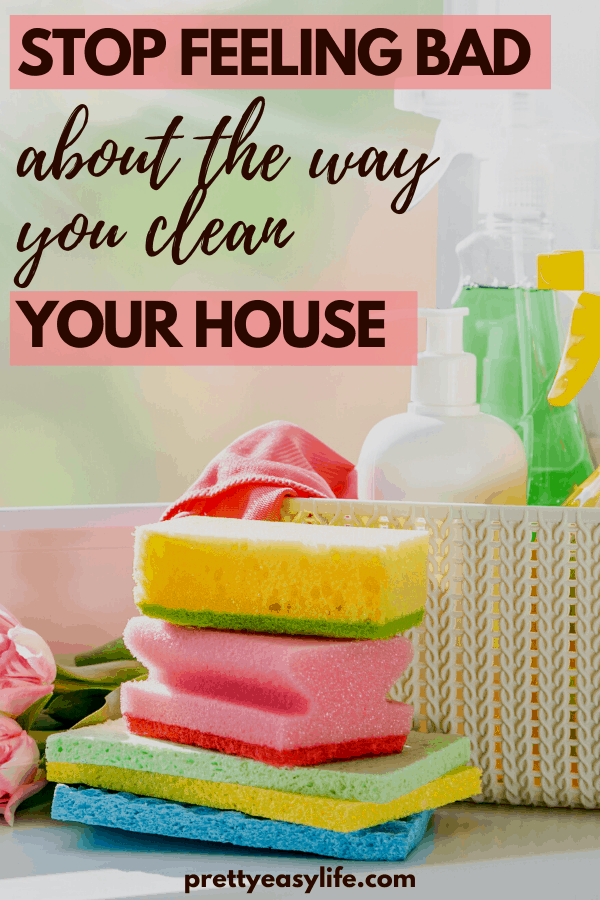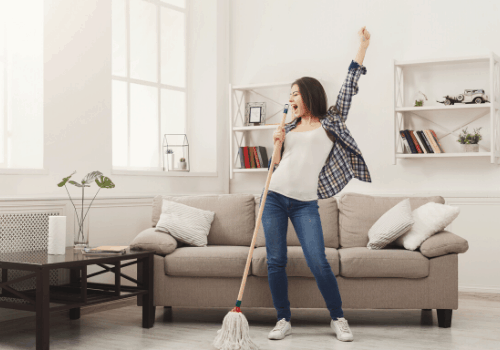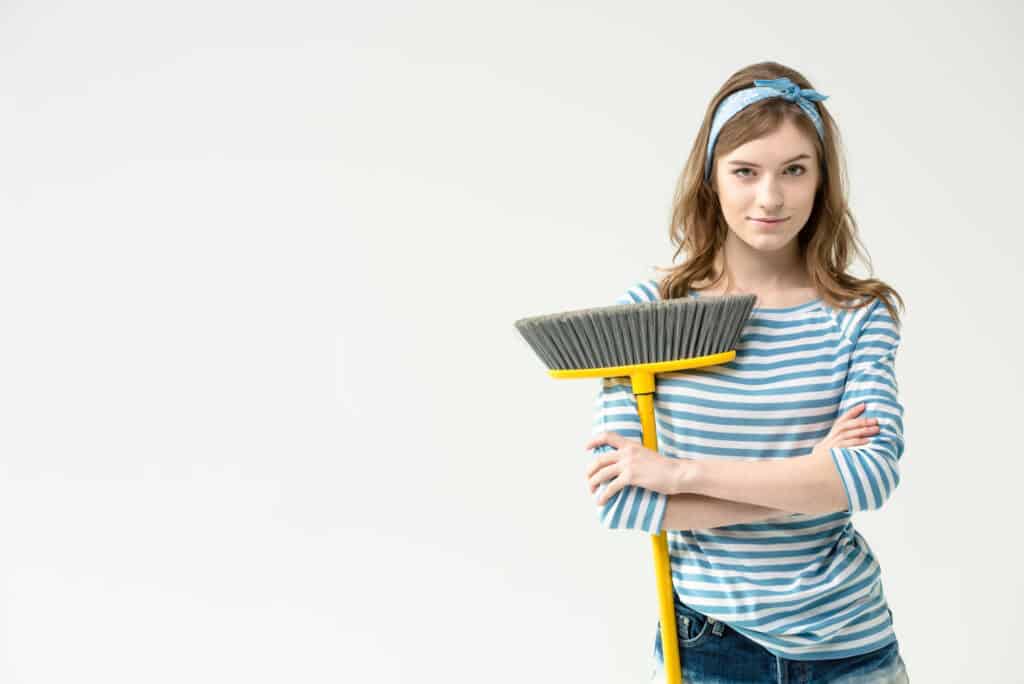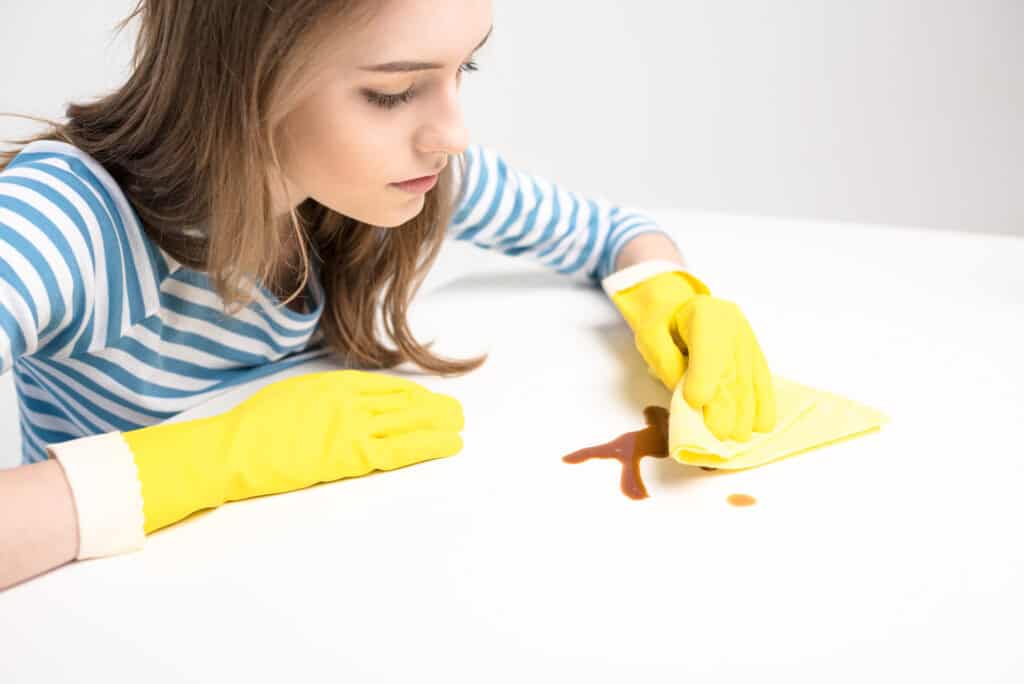Getting home after a long day at work, should be something pleasant and soothing. Yet for many of us is not what happens. As soon as we open the front door the view is a disaster: mess, dirt and a sense of unsettlement.
You’re tired and many times stressed as well, your first reaction is to be mad and feel discouraged to do something about it. You get yourself to the kitchen to cook dinner and try to ignore that first feeling.
Problem is, you can’t stop thinking about it, looking at the things that other members of the family left behind, the stain on the couch, used mugs on the side tables, jackets hanging on the stairs railing, all signaling that maybe you’re a failure to keep your house clean and organized.
Rationally YOU know you’re not a failure, you’re not the sole responsible for keeping the house nice and clean, more people share the space.
Yet, the sense that your live in a messy house doesn’t allow you to enjoy cooking a nice meal for your family. You’re annoyed and mad. “What a stupid way to finish your day. You should be able to keep your house cleaner and more organized.”
There are some Affiliates links in this post, including Amazon Affiliates. I may receive commissions for purchases made through them. Learn about our Privacy Policy here.
Does it sound familiar?
At this point you know that whatever is happening next, kids getting home, taking the dog for a walk, going out for shopping something unexpected, will turn into a disaster. You’ll probably yell at the kids and the dog and will forget the shopping list at home.
Good News: You can change the way you feel about your cleaning habits and make your life easier and happier EVERY DAY.
How to Break the Behavior Chain of Being Always Annoyed with your “Unclean” Home
1- Recognize you’re not the sole responsible for housekeeping
This is the #1 rule to switch your family dynamic. It’s easy to understand the concept, it is a simple statement that you have to feel in your heart, as a truth of our modern age. It’s a load that women have been carrying alone for centuries, that somehow still permeates their reality these days.
If you’ve watched your mom taking care of the house by herself, or even your grandma doing so, this sense of housekeeping as a female’s duty might still be prevalent in the background of your mind. Depending of the culture you were raised in, this reality is even stronger.
“Emotional Labor” concept accurelly pinpoints the hundreds of mini-actions, plans, and initiatives that a woman performs every day. It might be that you’re not even aware of every bit of effort, thinking and action you put towards keeping your household and family functioning every day.
Read more about Gemma Hartley, the journalist who ignited a national conversation on emotional labor. Her book Fed Up, is “a bold dive into the unpaid, invisible work women have shouldered for too long—and an impassioned vision for creating a better future for us all.”
2- Balance the biological call that most women have to take care of the “family nest”
Keeping a clean house has such a deep meaning for most women. The house is the nest, where you find shelter, where you and your family feel protected, it’s where you raise your kids, share your life with someone special, it’s the safe place.
As women, most of us are biologically wired to procreate, raise and protect our children. In this context it’s only normal that the constant call to maintaining the home nest nice and tidy is a strong feeling.
However life these days is different and busy. Women came a long way conquering professional lives, independence which makes more difficult to find balance between the “biological call” and real life.
The good news is that being aware of it can make a difference in the way you’ll deal with your house keeping roles, sharing the duties and not carrying the heavier load mostly by yourself.
3- Resist the temptation of taking control of your Household all the time
Since there are many things happening in life at the same time, especially if you have kids, the easiest way to deal with all the last minute events and emergencies is just do it yourself. This is an emotional trap.
The thing is, it becomes a habit to jump in and quickly clean up the powder room, since it only takes 10 min… or wash the sink in 5 min.
It’s fine to do so now and then, but next thing you know, you just added one more to-do to your list and you’re starting to feel resentful of your housework load.
Many people get caught on the cycle of looking after what it seems more urgent, instead of tackling what is actually more important first.
A good example is cooking crappy meals because your kitchen is a mess, instead of spending some time organizing your kitchen first to make it more functional and ready to produce healthier meals.
4- Start with a plan to change your cleaning habits according to what YOU value
Find out what would motivate you before starting your plan. Here a few possibilities:
- You’re a fan of Mari Kondo and her system of simplifying and organizing your home
- You would like to improve good energy of your home with some Feng Shui concepts
- You strive with the help of a Bullet Journal to get your plans and thoughts organized
- You need outside incentive to figure it out, having a friend or two to talk about it, would do wonders for you.
- Just following a good house cleaning plan would do the job
- Finding time to yourself to be able to be more centered and self aware of your emotional demands could help you a lot. Some meditation could help to do so.
Cleaning Habits versus OCD Cleaning Habits
It can’t be helped, we all have some level, or a lot of OCD behaviors and it is not my goal to go deeper about it here. If you feel this way about yourself, first acknowledge that it’s just part of who you are. There’s nothing wrong about it, you just have to accept that this is part of your personality and deal with it in a manner that will fit your family’s dynamic.
Take in consideration how is affecting the people around you and be open to discuss this issue with them.
How to deal with your emotions about what it means to have a clean house
Cleaning and organizing your home seem to be mundane and simple task, not rooted in anything emotional. Yet, simply being in a clean space impacts us in other key ways. According to a research from the Clorox brand reveals that cleaning and clean spaces play an important role in developing empathy, compassion and connection. In a clean space, the majority of people are:
- More relaxed (80 percent),
- Less stressed (60 percent), and
- More productive (72 percent)
First step is to acknowledge your own feelings about what it means to have a clean space. Many times this simple action will be enough to adjust your emotions and be realistic with what you can do about it.
How to identify if your cleaning habits are in sync with your lifestyle
1- Do I feel bad about my cleaning habits because I am comparing myself to other people?
With social media, we’re constantly exposed to pictures and makeovers of dream clean houses and spaces, where a fairy tale could take place any time. As pleasant as it might be to be looking at pictures of spotless closets, perfect pantries that look like a grocery store shelf and beautiful piles of linens carefully folded, the days in which women could spend that much time organizing a perfect home sweet home are gone.
2- Is it realistic for me to expect the level of cleaning that I “envision” ?
If you’re on Pinterest you know that it is easier to organize numerous cleaning boards and collect many ideas than actually doing it.
Be realistic about what you have going on in your life and assess how much you need to do, as oppose as how much you want to do.
3- What is my personal history of a clean home?
My daughter has a friend that since an early age, she would strive to organize and clean her room. So much so that she would even organize my daughter’s room. It was a ritual that would calm her down and make her feel good and she is a very organized and neat person to this day.
We all know people like her, for whom, cleaning and organizing comes as easy as breathing. This has to do a lot with our personal history as children, how much we were taught, how much we were expected to do and how important cleaningness was for our parents.
Try to remember about your own narrative as a child to understand what connection your childhood has with your current cleaning habits.
4- Physically how much can I do? How much time I can devote to cleaning?
It’s easy to beat ourselves up about how much we clean and how organized our living spaces are. Paying attention to your perceptions and feelings go a long way on figuring out how you can improve your relationship with your cleaning habits.
You can find small cleaning actions/habits that get you fast and big results, you also can cope with procrastination to clean and work on your motivation to keep your house clean.
Wrapping it up
We all have days when we just can’t face cleaning the house but if we can incorporate new healthy habits that will facilitate the mental process of keeping the house organized, life will be easier and happier. It’s not impossible to develop a way to be motivated to clean.
It’s easier said than done. Healthy habits take time to be built, takes discipline and understanding of what the family dynamic is. But it is so worth it to dig into your emotions and clear out what is stopping your household to function in a more orderly manner. You should stop feeling bad about your house cleaning habits as if it is you, the only one responsible for it. Change it, plan and discover how you’re in charge of your new habits.
